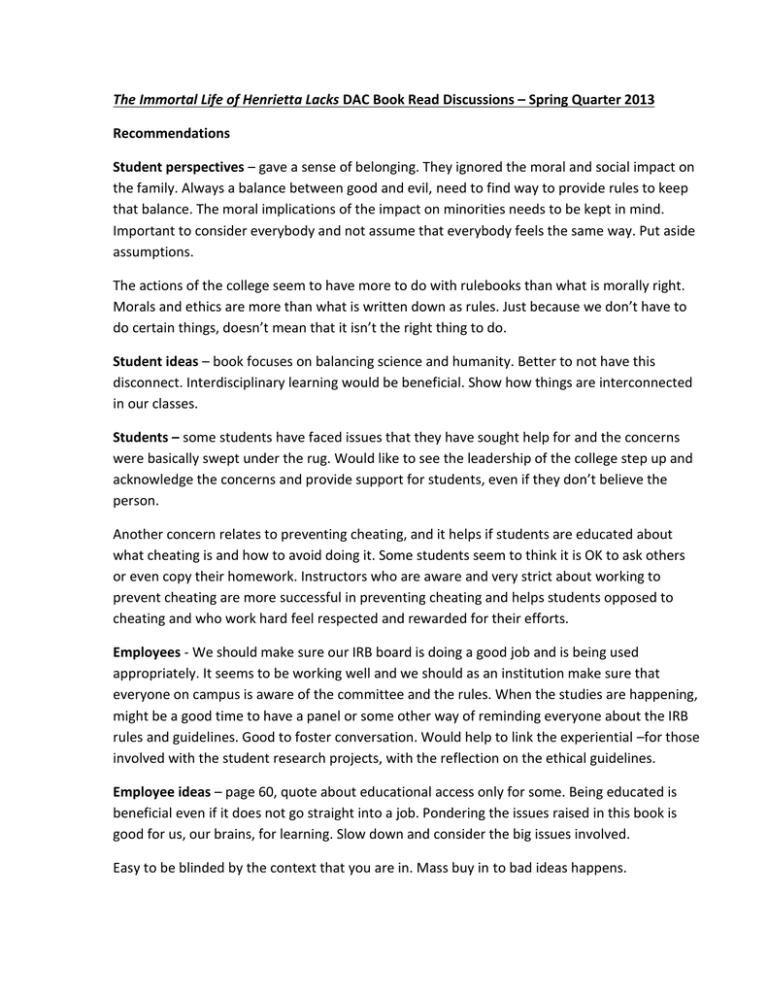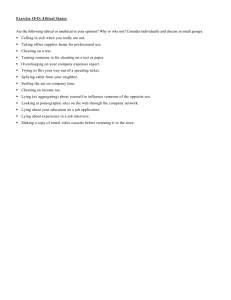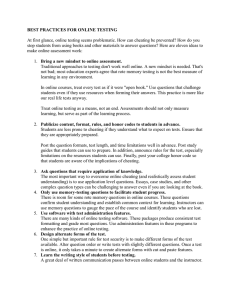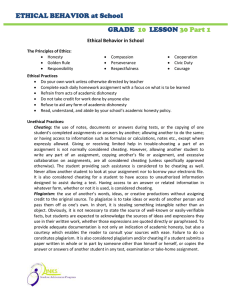The Immortal Life of Henrietta Lacks Recommendations Student perspectives
advertisement

The Immortal Life of Henrietta Lacks DAC Book Read Discussions – Spring Quarter 2013 Recommendations Student perspectives – gave a sense of belonging. They ignored the moral and social impact on the family. Always a balance between good and evil, need to find way to provide rules to keep that balance. The moral implications of the impact on minorities needs to be kept in mind. Important to consider everybody and not assume that everybody feels the same way. Put aside assumptions. The actions of the college seem to have more to do with rulebooks than what is morally right. Morals and ethics are more than what is written down as rules. Just because we don’t have to do certain things, doesn’t mean that it isn’t the right thing to do. Student ideas – book focuses on balancing science and humanity. Better to not have this disconnect. Interdisciplinary learning would be beneficial. Show how things are interconnected in our classes. Students – some students have faced issues that they have sought help for and the concerns were basically swept under the rug. Would like to see the leadership of the college step up and acknowledge the concerns and provide support for students, even if they don’t believe the person. Another concern relates to preventing cheating, and it helps if students are educated about what cheating is and how to avoid doing it. Some students seem to think it is OK to ask others or even copy their homework. Instructors who are aware and very strict about working to prevent cheating are more successful in preventing cheating and helps students opposed to cheating and who work hard feel respected and rewarded for their efforts. Employees - We should make sure our IRB board is doing a good job and is being used appropriately. It seems to be working well and we should as an institution make sure that everyone on campus is aware of the committee and the rules. When the studies are happening, might be a good time to have a panel or some other way of reminding everyone about the IRB rules and guidelines. Good to foster conversation. Would help to link the experiential –for those involved with the student research projects, with the reflection on the ethical guidelines. Employee ideas – page 60, quote about educational access only for some. Being educated is beneficial even if it does not go straight into a job. Pondering the issues raised in this book is good for us, our brains, for learning. Slow down and consider the big issues involved. Easy to be blinded by the context that you are in. Mass buy in to bad ideas happens. Don’t assume that innovations for their own sake are necessarily beneficial. Unintended consequences can be a big problem, as seen in the book when the HeLa cells contaminate a lot of research. Institutionalized issues of ethical behavior and bias in the book regarding the health care field also relate to our educational institutionalized, where we also experience the systemic bias relating to the areas of race, gender and poverty. We should examine how these issues can create barriers to access and success on our campus. Employee perspectives – the importance of listening and avoiding assumptions is key. Keep in mind the racial lens and the status quo and how to address these issues when they arise. At a predominantly white institution, it is important to keep a focus on the racial lens. It is important to keep in mind the issue of professional arrogance in our roles as instructors and managers. How do we communicate well and listen in ethical and moral ways to understand better the students’ views? Everyone who talks with students needs to work at making sure to carefully and clearly explain things to students, especially students from other countries who have both language and cultural barriers to understanding what is said to them.



